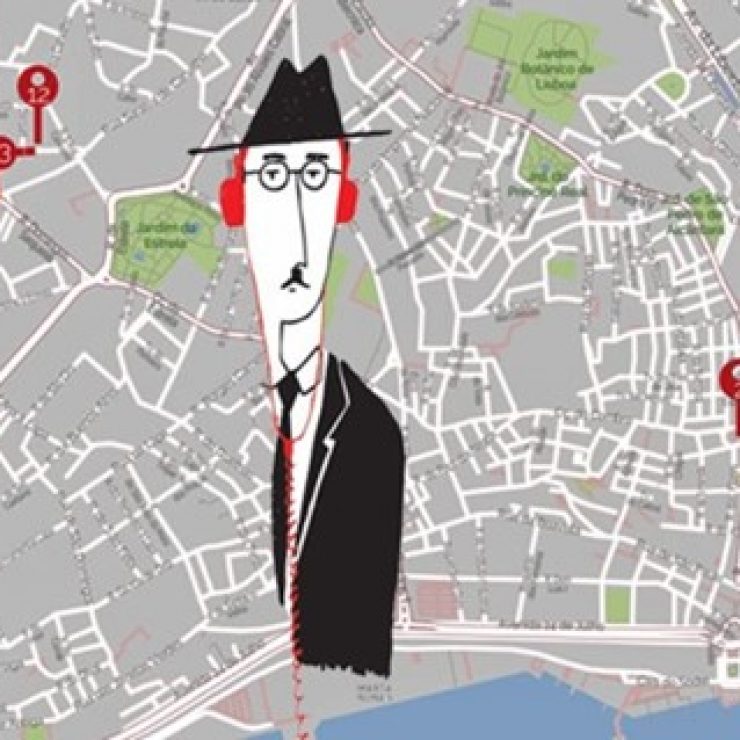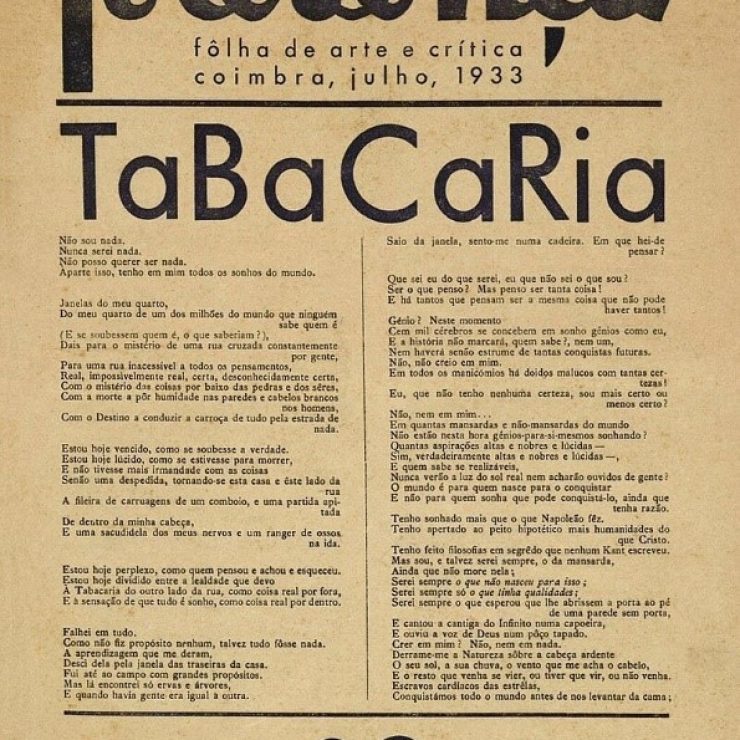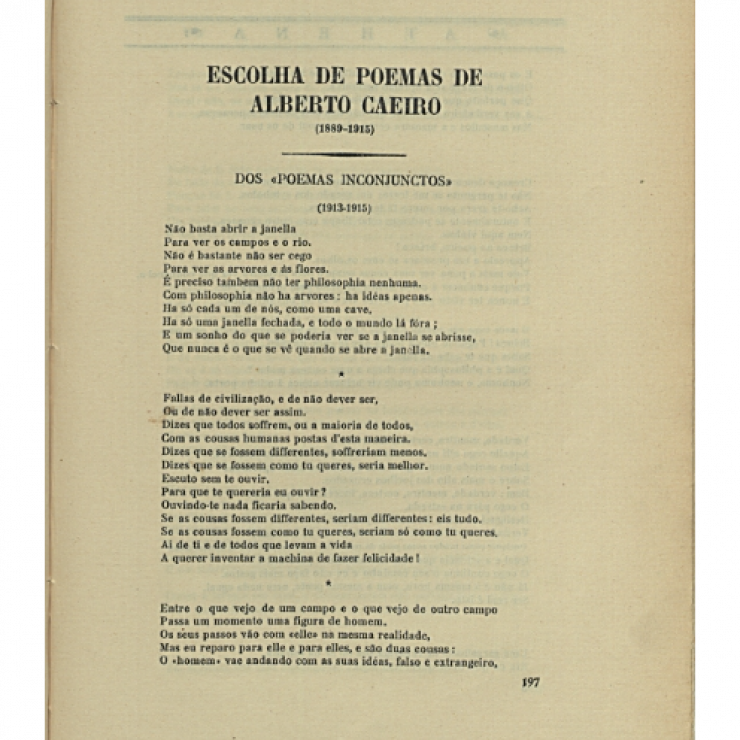Here we propose a reading of five poems by Fernando Pessoa, which the poet published during his lifetime as an orthonymous author, i.e. Pessoa himself, with no heteronyms or alter-egos attributed to these verses.
This selection includes verses that are particularly representative of the writer’s aesthetic and career. In fact, here you’ll find the first and last poems that Pessoa published as an orthonym, as well as the famous poem “Autopsychography” in which Pessoa confesses that “The poet is a pretender”.
We publish the texts as well as the image of the original publication, in chronological order of publication with bibliographical data for each poem.
Good reading!
«Twilight Impressions – I» (1914)
O church bell of my village,
Each of your plaintive tolls
Filling the calm evening
Rings inside my soul.
And your ringing is so slow,
So as if life made you sad,
That already your first clang
Seems like a repeated sound.
However closely you touch me
When I pass by, always drifting,
You are to me like a dream—
In my soul your ringing is distant.
With every one of your clangs
Resounding across the sky,
I feel the past farther away,
I feel nostalgia close by.
(A Renascença, February 1914, p. 11)
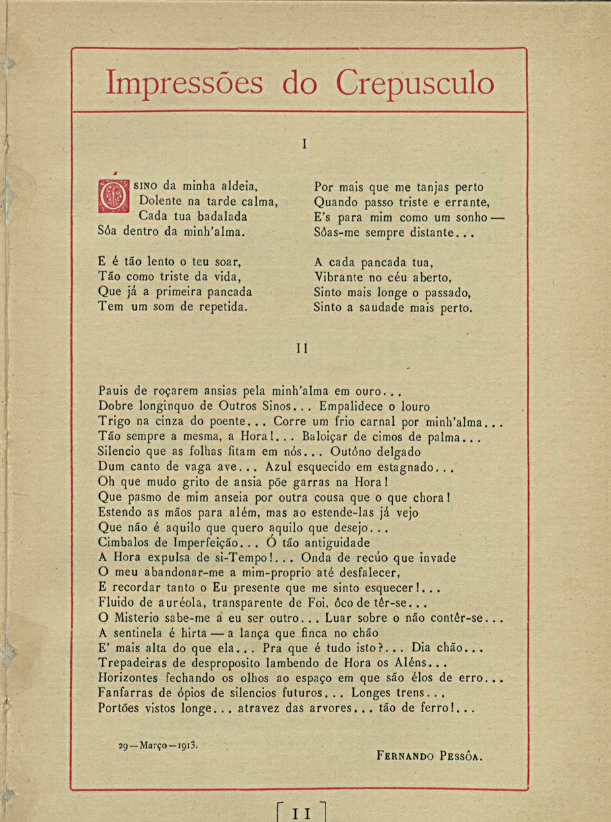
«Via Crucis II» (1916)
There is a poet within me that God has told me…
On ravines, spring leaves behind
The wreaths she brought of the beginnings
Of her ephemeral and spectral joy…
Through the dewy meadow,
The joyful steps of childhood are heard.
Depleted from any yearnings, to remain,
Watching hours pass as if smiling…
A day flowering with Light capitals…
Softened violins of silence…
Boredom where only to be bored is seducing…
My soul kisses the painting it has created…
I sit by the centuries lost
And cogitate on their profile of inertia and flight.
(Centauro, 1, October-December, 1916)
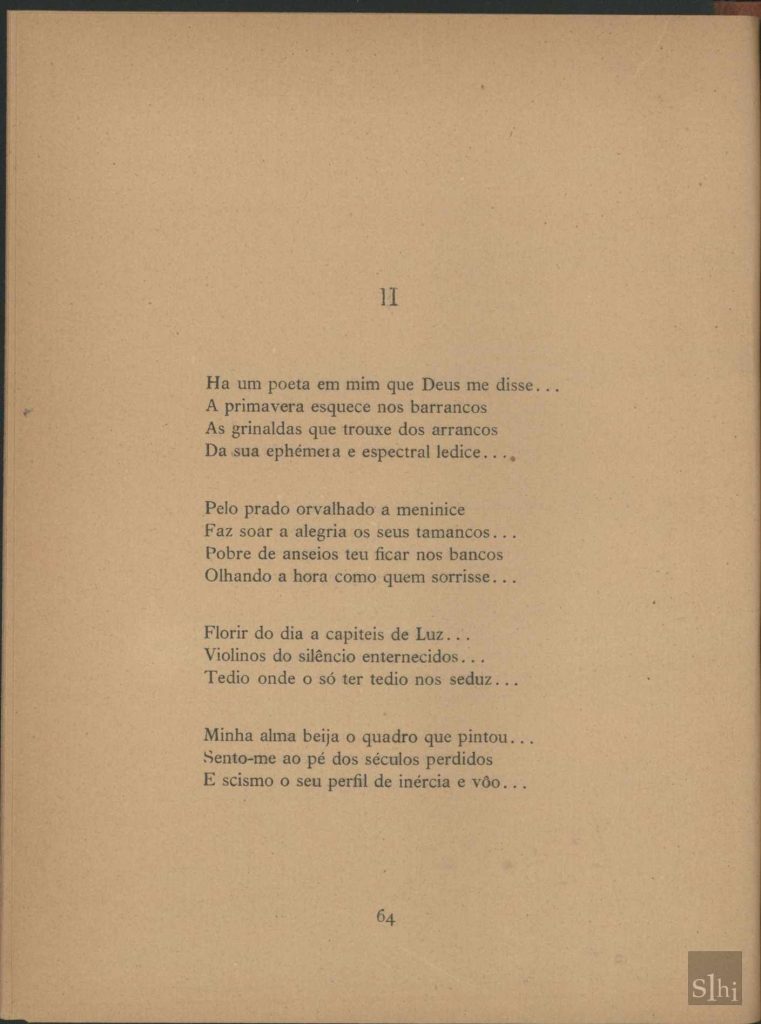
«Abdication» (1920)
Take me into your arms, O eternal night,
and call me your son.
I am a king
who willingly abandoned
my throne of weariness and dreams.
My sword, weighing my tired arms down,
I surrendered to calm and powerful arms,
and I left my crown and sceptre – shattered
to pieces, in the anteroom.
My coat of mail, utterly useless,
my spurs with their futile jingle,
I left behind on the chill staircase.
I shed royalty, body and soul,
and returned to Night, ancient, calm
as a landscape in the dying light.
(Ressurreição, 9, February, 1920, p. 4)
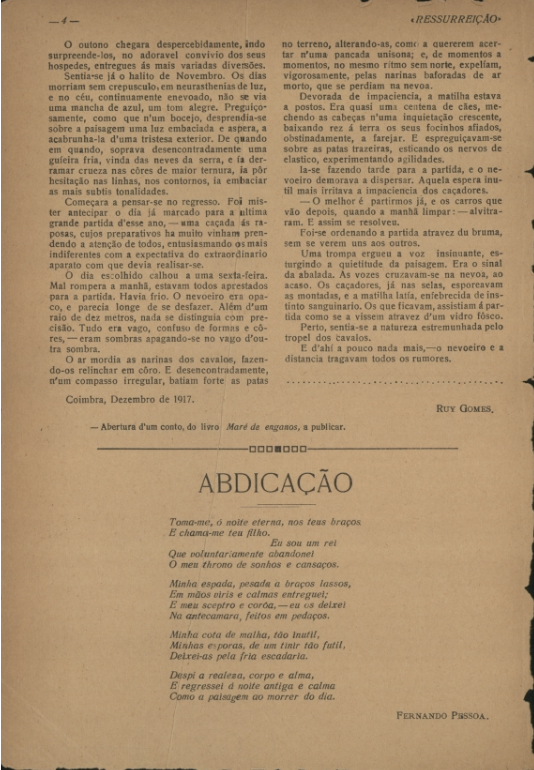
«Autopsychography» (1932)
The poet is a pretender,
who pretends so completely
he even pretends to pain
the pain he really feels.
And those who read what he writes,
reading of pain, feel truly
neither of those pains he has,
but what they themselves have not.
So round its track goes
wheeling, to entertain our reason,
this string of carriages
they call the heart.
(Presença, 36, November 1932, p. 9)
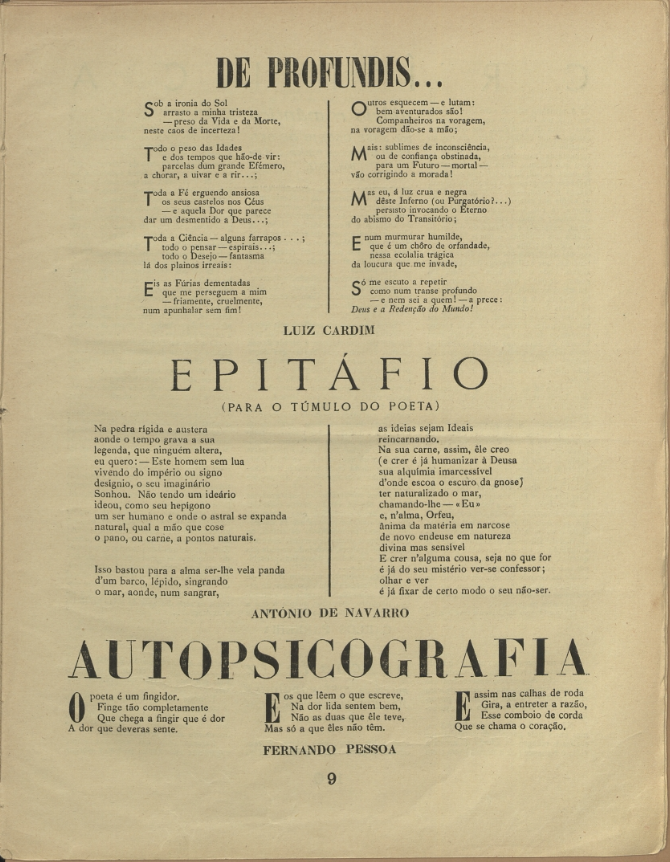
«Advice» (1935)
Surround who you dream you are with high walls.
Then, wherever the garden can be seen
Through the iron bars of the gate,
Plant only the most cheerful flowers,
So that you’ll be known as a cheerful sort.
Where it can’t be seen, don’t plant anything.
Lay flower beds, like other people have,
So that passing gazes can look in
At your garden as you’re going to show it.
But where you’re all your own and no one
Ever sees you, let wild flowers spring up
Spontaneously, and let the grass grow naturally.
Make yourself into a well-guarded Double self,
letting no one who looks in
See more than a garden of who you are—
A showy but private garden, behind which
The native flowers brush against grass
So straggly that not even you see it . . .
(Sudoeste: cadernos de Almada Negreiros, 3, November, 1935, pp. 5-6)
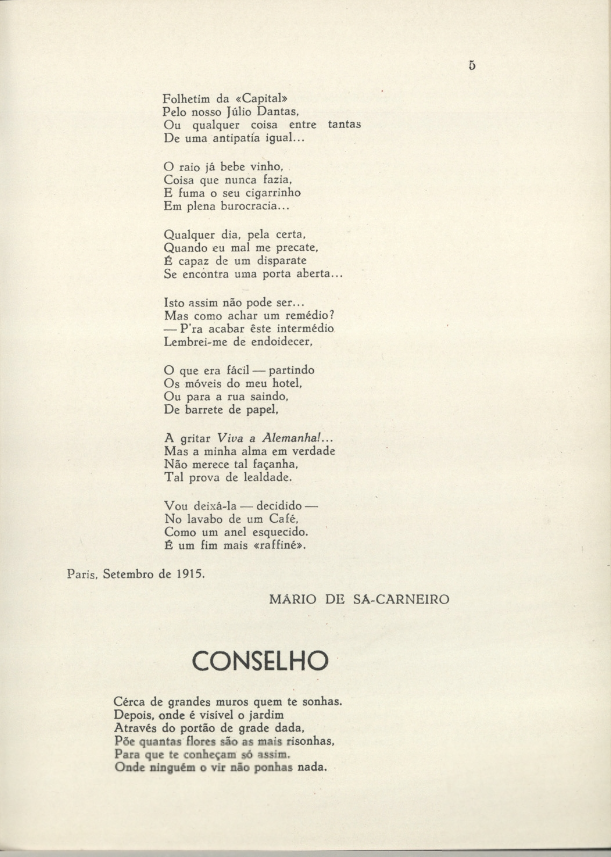
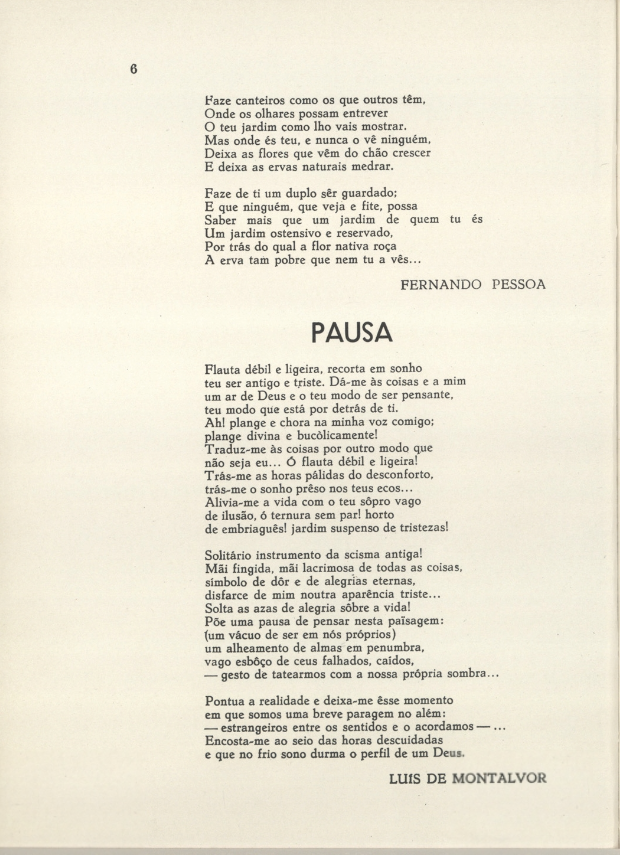
Introductory note and selection by Fabrizio Boscaglia.
_
Discover Lisbon & Pessoa, from Lisboa Pessoa Hotel.

